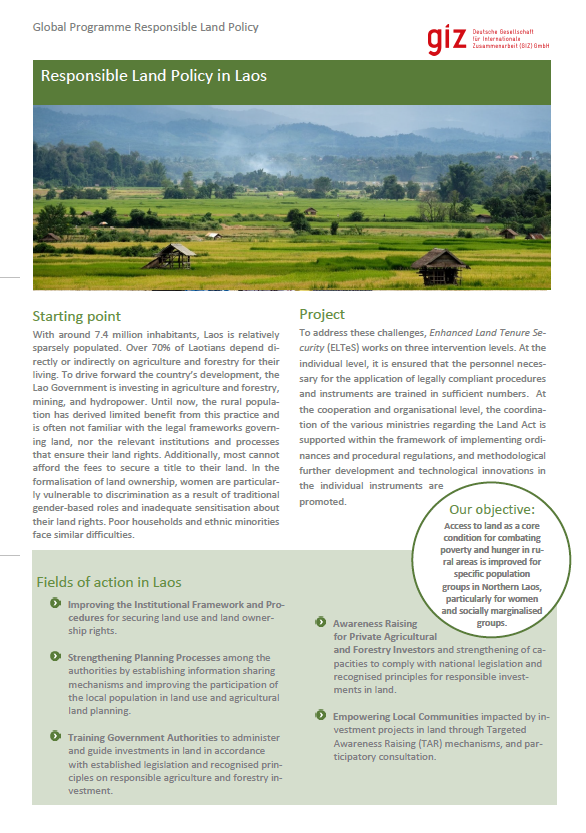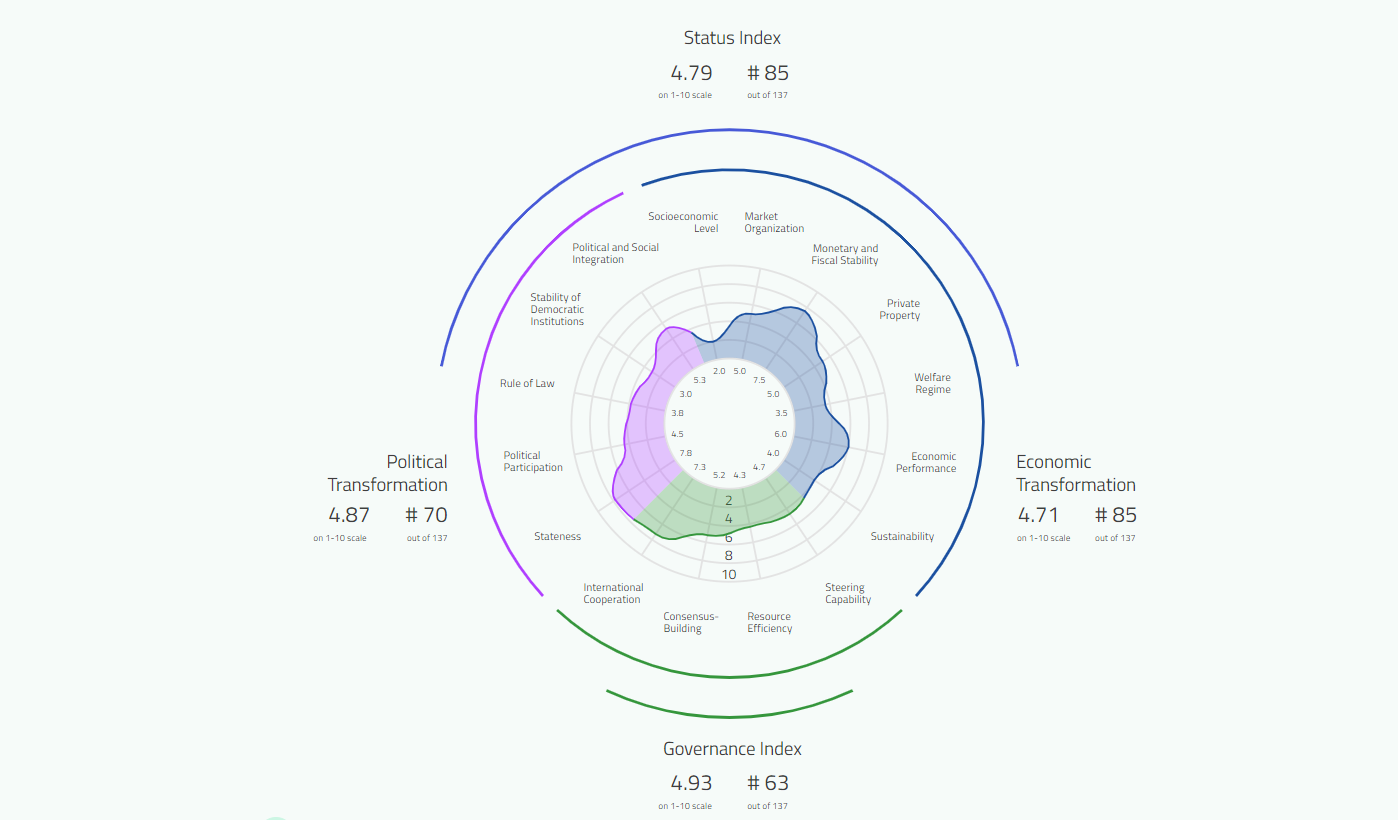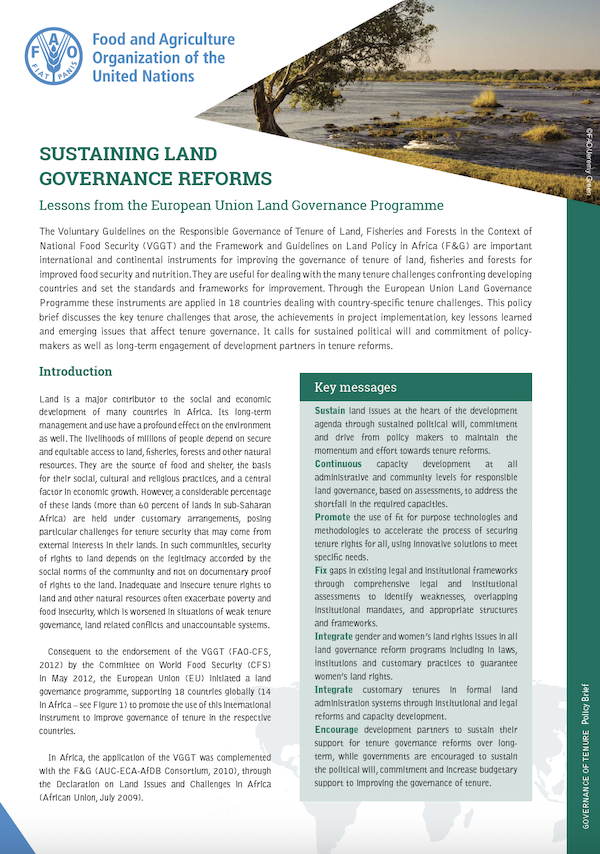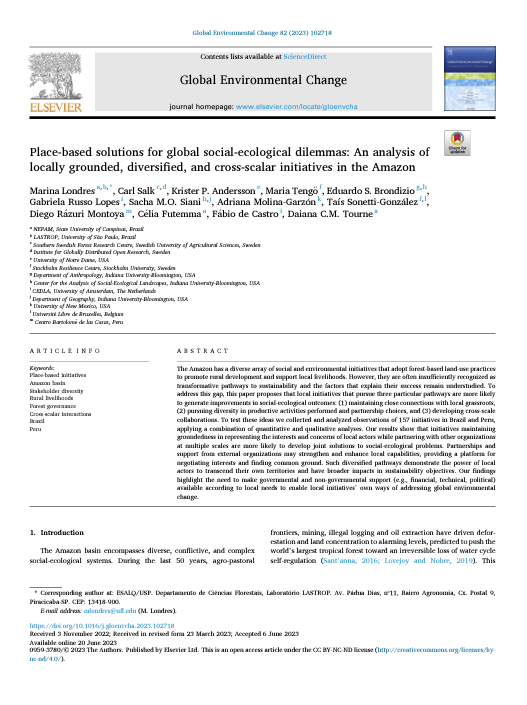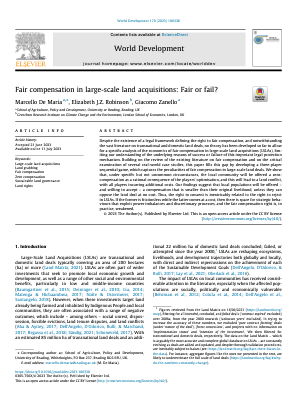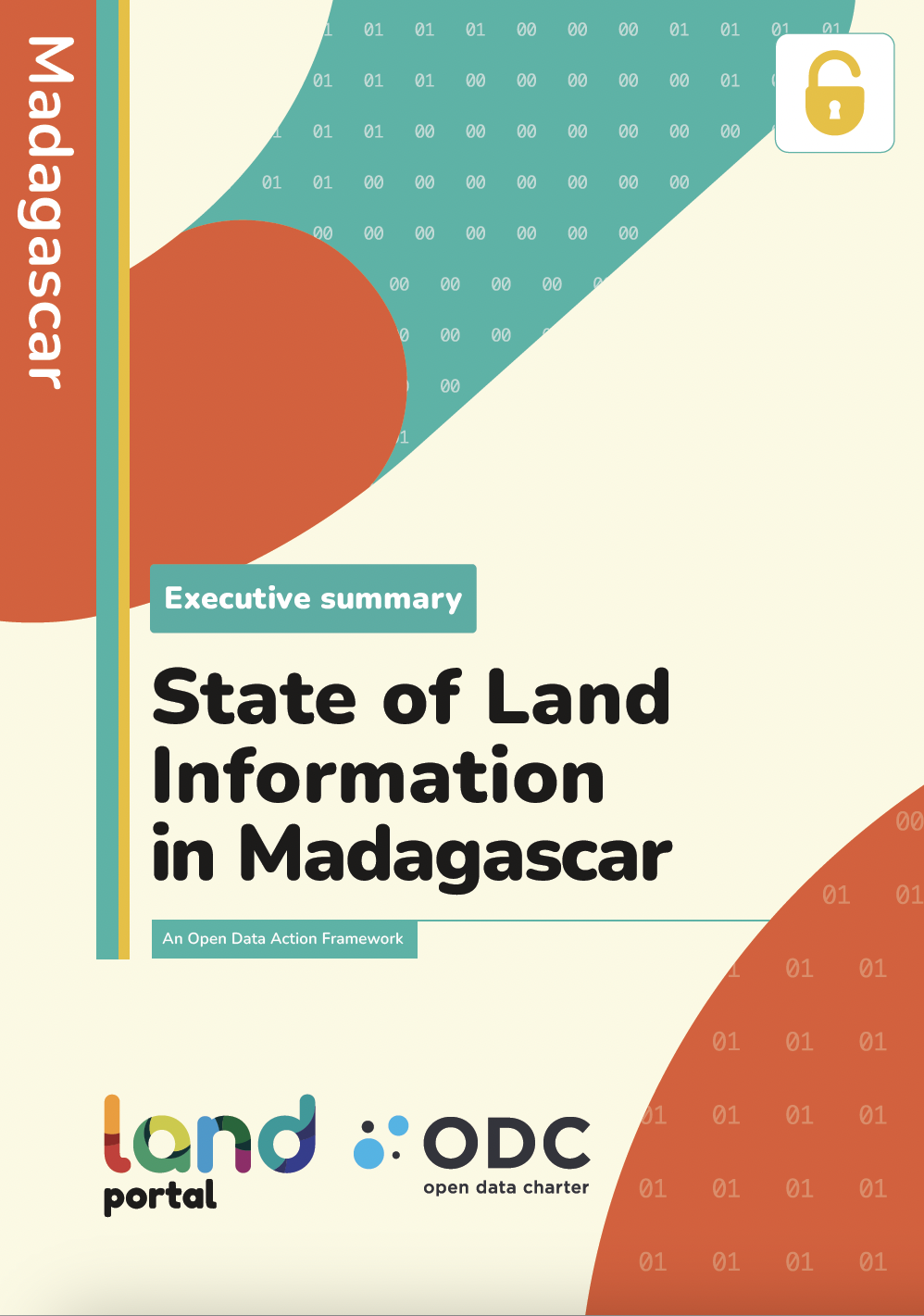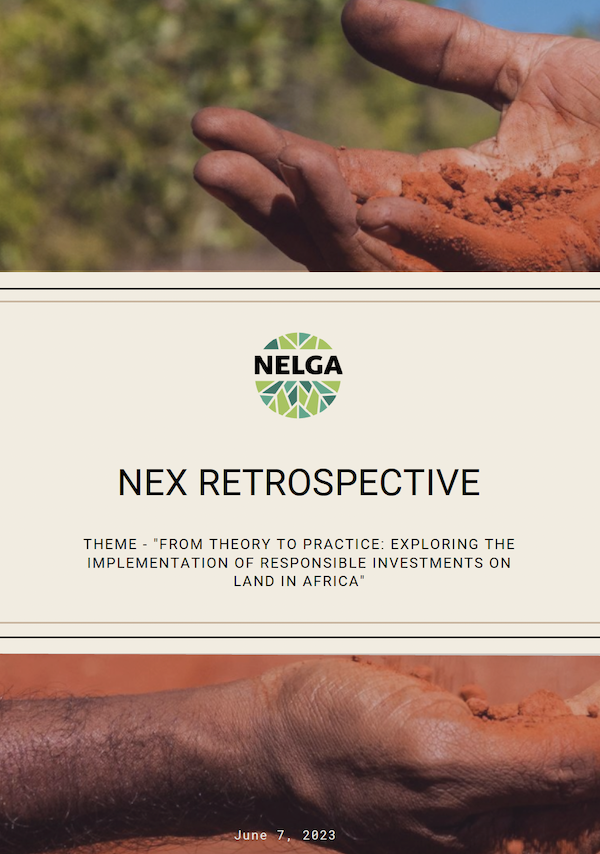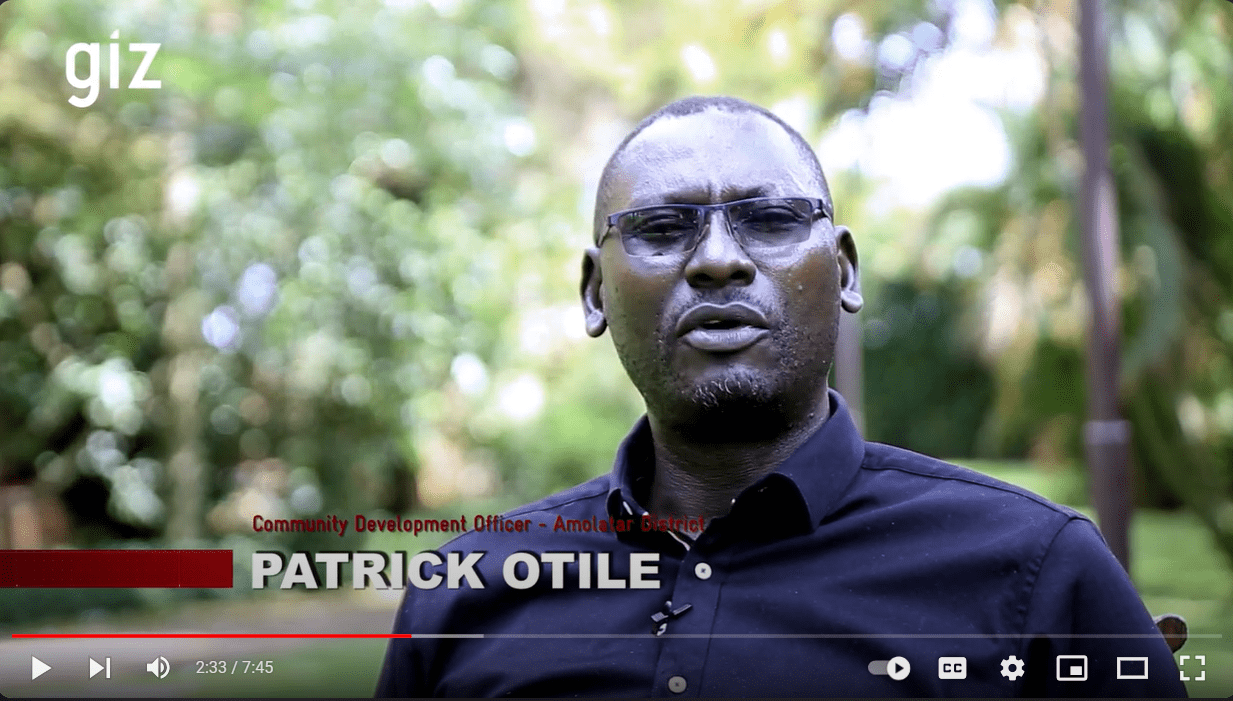Responsible Land Policy in Laos - ELTeS
With around 7.4 million inhabitants, Laos is relatively sparsely populated. Over 70% of Laotians depend directly or indirectly on agriculture and forestry for their living. To drive forward the country’s development, the Lao Government is investing in agriculture and forestry, mining, and hydropower. Until now, the rural population has derived limited benefit from this practice and is often not familiar with the legal frameworks governing land, nor the relevant institutions and processes that ensure their land rights.

